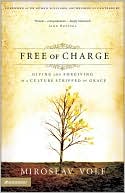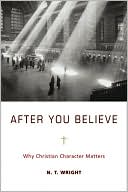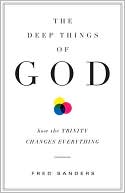When it comes to changing lives, there are no easy roads. As Bono says (yes, that Bono),
“Every beauty needs to go out with an idiot.
How can you stand next to the truth and not see it.
Oh a change of heart goes slow
It’s not a hill; it’s a mountain
As you start out the climb.”
In a faith erected upon the foundation of the brutal murder of the God-man, that should seem obvious. Sadly, for me it has not been. Early in my life I was influenced by what has become known as the Church Growth Movement. Polish up your church, make your teaching “relevant,” sing modern songs, adopt the right ministry model--
just do the right things, and you’ll change lives. This vision though influential never captivated me. It lacked that ingredient I and my generation are starving for, authenticity. Enter stage two, the truth stage. Get the truth about you, about God, about Jesus and what he did.
Just teach the right things, and you’ll change lives. I found this approach easier to accept as it connected me with a big God who I could get excited about. Plus, it had the added benefit of making you feel like you were in the know (read “made me arrogant”). There was just one problem. People’s lives still weren’t being changed.
“It’s not a hill; it’s a mountain.” Ironically, both of these approaches forget that. Jesus, however, did not. Church Growth guys say making church as attractive as possible results in change. That’s a relatively easy fix. Truth guys say getting your doctrine right leads to change. And that’s a relatively easy fix. Jesus says, “Take up your cross and follow me.” That’s not an easy fix. As a pastor, you are forced into the dark realities of people’s lives. Here on the battle lines for hearts, marriages, and literally lives, it becomes clear that the reason change is a mountain is because our messiness has dug us into such a deep pit. Bono’s was right. We can stand next to the truth and not see it. Teaching the right things, just put people next to truth. They still don’t see it.
The Cop Out. At this point, many just throw up their arms. “Of course, we can’t make them see the truth, that’s God’s job,” they say. And on that point they stand on firm biblical ground. Only it’s interesting that Jesus who came with his revolutionary message and his deep insights into the soul and his masterful grasp of Scripture should spend so much time telling pretty earthy stories to people. Reading Jesus is reading a master story teller who obviously spent much thought into crafting illustrations and stories to make his point stick. How offensive, comforting and brilliant is his story on the prodigal. How penetrating the tale of the Good Samaritan. Jesus believed that “all that the Father gives me will come to me,” and yet he spent a lot of effort in translating his truth into their language.
The Fog of False Assumptions. Assumptions are dangerous things. They are the beliefs that you don’t even know that you have. Those hidden things in the soul that you’ve never even thought of questioning. Chances are that when you look at a man and consider his actions absurd he is not absurd at all. He just has a different set of assumptions. But since you cannot even begin to challenge your own assumptions, you call him absurd. False assumptions then are dangerous things indeed. They create a thick fog around minds, even whole societies, and blind them from the truth. To tell a man standing in a fog thick enough to blind him from the sight of his own feet that he should walk away from the cliff and toward the bridge is no help at all. He needs someone who knows the trail, who can in a way “see” through the fog, to walk to him, grab him by the hand and lead him to safety. This is Jesus’ model. He didn’t just send true information into the fog. He penetrated it. He shined his light into the darkness. Therefore, it is the duty of Jesus’ body, his present, living, breathing hands and feet, to do likewise.
So all of this has been a bit of intro into a new series that I want to write about. Over the course of the next few months, I want to consider the false assumptions that blind individuals, and particularly individuals in our context, from seeing Jesus. My hope is that this will aid us all in penetrating into the fog and grabbing the hands of bewildered and lost men and women and lead them to Jesus. As we go along, I am very interested in what false assumptions you’ve encountered, and perhaps how have you have answered them.
 I'm currently reading through Miroslav Volf's Free of Charge: Giving and Forgiving in a Culture Stripped of Grace. Here are a couple of great quotes just in time for the Christmas season.
I'm currently reading through Miroslav Volf's Free of Charge: Giving and Forgiving in a Culture Stripped of Grace. Here are a couple of great quotes just in time for the Christmas season.















